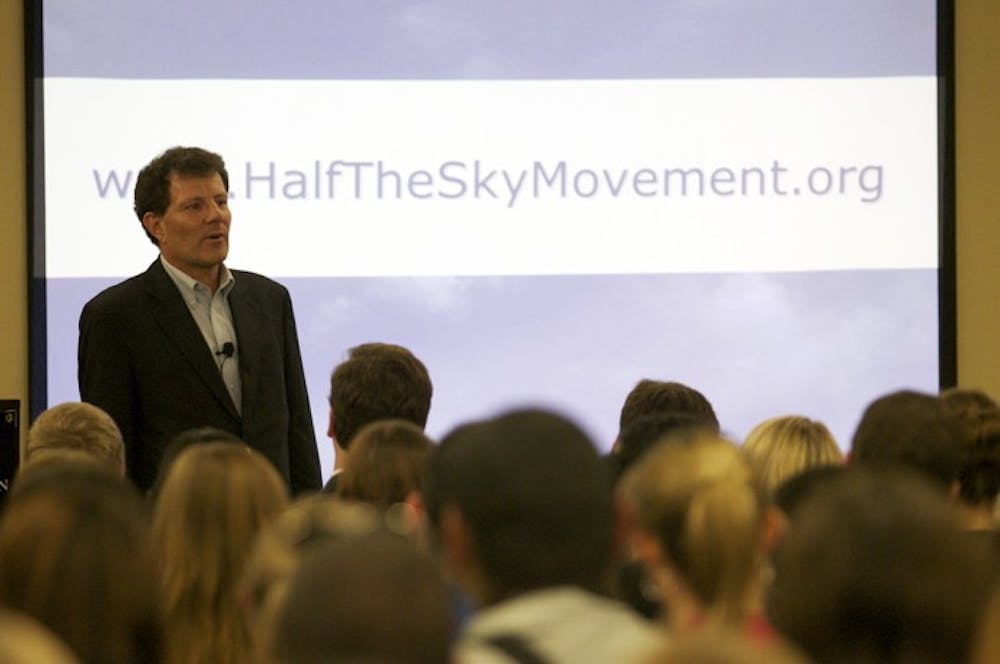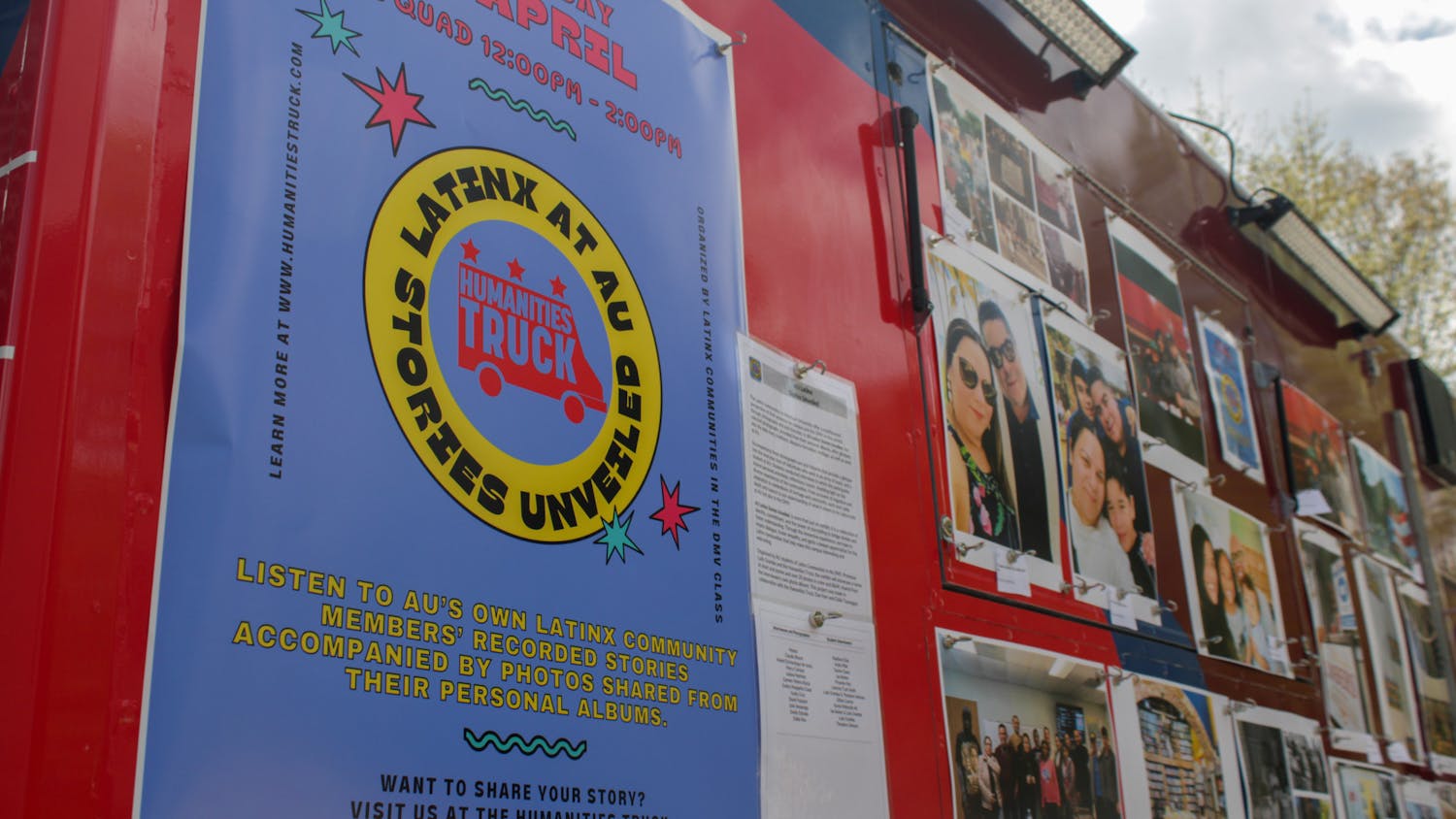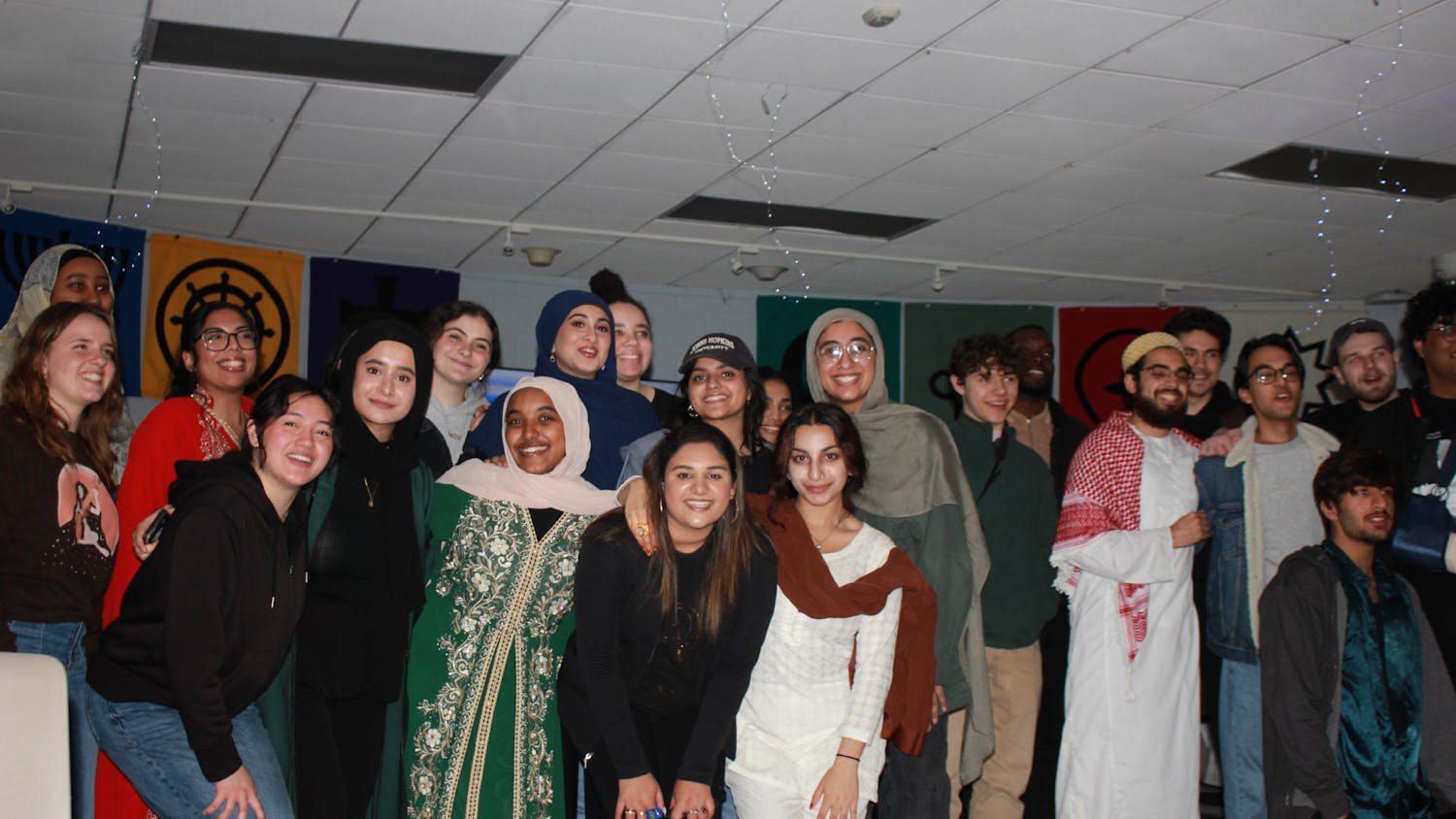New York Times columnist Nicholas Kristof sat down with The Eagle before his Kennedy Political Union-sponsored speech at AU on Sept. 10. He talked about the challenges and opportunities he has faced while reporting abroad.
Q: I find that you practice a unique brand of journalism, where it’s very much about fact-gathering and telling a story, but then there is opinion involved in it. There’s a reason you’re an op-ed columnist rather than a news reporter from a strictly objective standpoint. What does that give you in terms of opportunities for your reporting? Does it work against you sometimes or does it normally work in your favor?
A: A lot of what I do really doesn’t have very interesting opinions attached to it. For example, if I’m reporting from Darfur, the more interesting element is what I find on the ground, and it’s pretty obvious in this situation that somebody’s going to be against genocide. So there are times when I think, “Oh boy, I wish I could just be writing a 2,000-word piece that would start on the front page instead of an 800-word piece deep inside.” But then again the freedom to write what I care about, the ability to hold people’s feet to fire, it all makes it worth it.
Q: Do you find you would be able to do that if you were in the news section?
A: The news media, I think, in general, especially television, are dropping the ball on global news. The New York Times is an exception to that and is still committed to covering those issues. So at the Times, I’d still be able to run [around] the world and write about things I care about. I wouldn’t be able quite so openly to hold people’s feet to the fire.
Q: What other news outlets do you find nowadays are doing good job of journalism?
A: TV is really dropping the ball. The problem is if you’re an executive producer of a television show, it’s really expensive and somewhat dangerous to send reporters off to Somalia or Congo or Sudan. And if you do, you’re not going to get much of an audience anyway. And it is so much cheaper and easier to put a Democrat and a Republican in a studio together and have them yell at each other. And that will also have your ratings go up. So there are a lot of perverse incentives to focus on heat rather than light.
I do think that the Internet is creating some citizen journalism, and think tanks and advocacy groups are to some degree picking up the slack, and Twitter and Facebook and all the rest…
Q: You talked about going to dangerous places, and you’ve been all around the world, probably in situations … ---
A: Less friendly places than AU (Laughs)
Q: What have those experiences been like? What have they taught you?
A: I must say, I find the readers often focus on my lack of safety. But the people that are invariably taking the biggest risk are my local interpreter, my local driver. I mean, frankly, usually I have a certain amount of just commercial value for ransom, while my interpreter doesn’t. So … I always worry about them most of all. And also then after reporting, I come back here while they stay behind, so invariably the people I worry about the most are people who help me in the reporting and my sources…
Q: How often do you keep touch with sources after you do a story?
A: I try to stay in touch with sources, especially if I fear they may be at some risk. But one has to do that very delicately because I don’t want to communicate with them in a way that will put them at greater risk…
…
Q: Can you talk a little about reader engagement? I know you’re very active on Facebook, Twitter and your blog.
A: Op-ed audiences tend to be somewhat older. I want to engage with people --- AU students are kind of my target audience. They represent the future. They care about the world. They’re engaged in social issues. And the question is: how does one reach them? …
The hope is to get young people to think about these issues and be aware of issues. Just the other night, I met a young woman who told me she read the book [“Half the Sky”], had quit her job and was about to move to Tanzania. Her parents probably want to kill me, but it was so exciting; it’s really validating as an author to feel like you can have that impact.
…
Q: What advice do you have for college students? What should they do before they graduate?
A: I would really encourage students to get out of their comfort zone in some form, and for many that would be traveling. But not just traveling to England, France or Italy with a herd of other students, but to go off and spend some time in rural India or Bangladesh or China or Africa or Bolivia. And it’s relatively cheap and many of those places. One can often subsidize one’s travels by teaching English for a while or getting some other job, and I think that’s how you see the rest of the world; it’s one thing to read about it in a textbook or discuss it in a class, but I think it’s really important to set foot in it as well, and that can be a really transformative experience.
I really believe in gap years before somebody gets to college. It’s a little too late for anybody reading your article, but I’d love it if AU administration encouraged more incoming freshmen to defer coming in for a year and do something or other in that year. And also graduates maybe take a gap year before grad school or whatever it is or even work abroad. Or do a blue-collar job if you think you’re going to have a white-collar career. Work in construction for a year or work in a factory. I just think that kind of experience is really, really powerful.
Q: How so?
A: I did a gap year and worked partly on a farm picking peaches and in a peach factory sorting peaches. And I turned out to be the world’s worst peach picker and peach packer. It was really kind of useful for me to discover there were things I was really awful at because I had been pretty good at most things I attempted, and I was so awful at this that it really made me think that if I had been born in any other epoch in world history I would have probably been a substantial failure. And that was a good thing to know.
zcohen@theeagleonline.com





